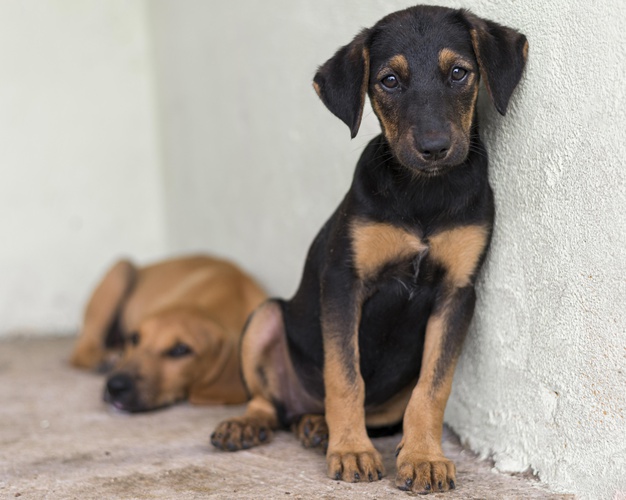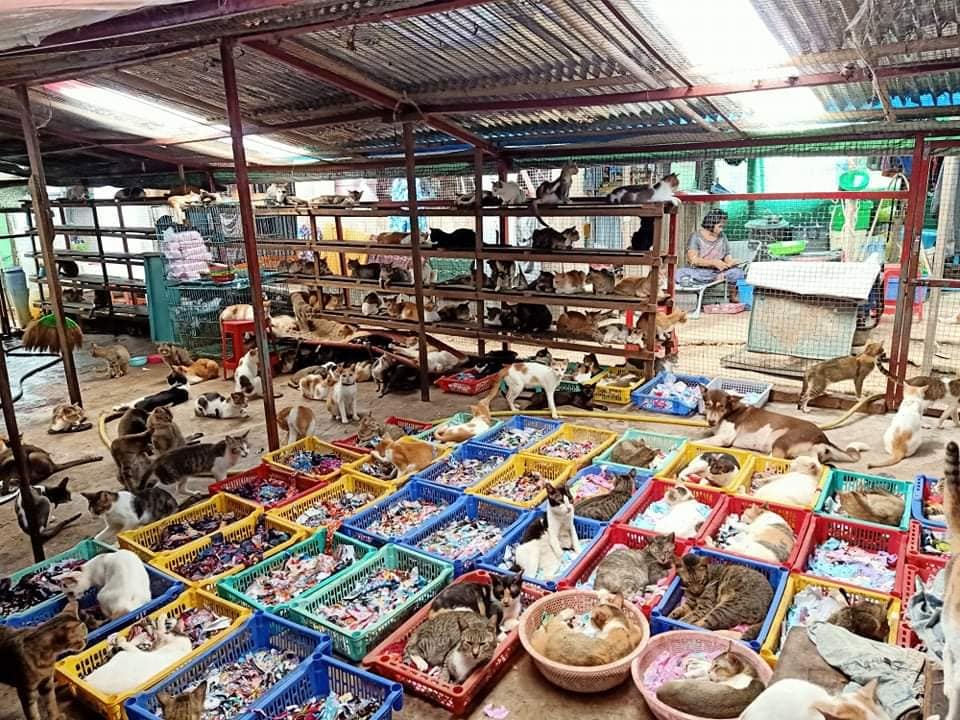It has been almost a year since the novel coronavirus first started in Wuhan city in China in December 2019, which has now killed millions of people around the globe. The humankind and the world has suffered a lot from the transmission of this respiratory disease, which not only resulted in illness and death of people but also in turmoil and hardship in people’s daily lives.
However, if we think about everything that has suffered from the consequences of the pandemic thoroughly, it is not only human beings. It has also made the lives of other living things harder to survive.
The first one is stray animals, abandoned on the streets. It is not actually an unusual sight to see stray animals, especially dogs, roaming around the streets in Myanmar as well as other countries around the world.
Stray animals depend on leftover food on the ground or in garbage bins left by people. Some lucky ones feed on food and water fed by kind individuals of the community or by food vendors, marketplaces and restaurants.
However, this is the most of what people can do for those stray canines. They are usually neglected and ignored by people due to the concern of hygiene and rabies. Neutering and vaccination for stray dogs is not widely considered and due to such reasons, the number of street dogs has increased from year to year.
With those increased numbers, the one question that we need to consider here is – how are they going to survive during the COVID-19 period?
The transmission rate of COVID-19 disease is increasing from day to day and nationwide lockdowns have become stricter with increased death rates around the globe. The streets are empty. People do not go out anymore unless it is mandatory. The restaurants and marketplaces are close early due to the curfew.
And the consequences of it- stray dogs are desperately searching for food and are at the risk of starvation. Dog lovers who used to feed them do not visit them anymore. Restaurants and food vendors from which they usually get leftover food are closed and there are no more people on the streets to whom they beg for food with their sad eyes.

It breaks my heart. It breaks the heart of animal lovers’ hearts. We cannot deny that when it comes to aid given from the government or respective organizations, the first priority will be the people. Animals are actually the forgotten victims of this crisis the world is facing.
However, such a light in the darkness- Four Paws has now started a pilot project. Four Paws is a global animal welfare organization based in Vienna, Austria, which reveals suffering, rescues animals in need and protects them, and it is funded exclusively by donations. Together with local partners, the project of Four Paws aims to feed around 1,000 free-roaming dogs in Romania.
“We do not normally carry out feeding projects for stray animals as they are counterproductive for sustainable population management if not combined with a sterilization campaign. However, the current crisis also demands a certain degree of flexibility from us. Without the commitment of our teams on site, the animals would surely starve to death.” said Manuela Rowlings, the Head of Four Paws.
As far as I know, there still isn’t such a program in Myanmar yet. However, it is very exciting and gratifying to see NGOs aimed at caring for injured street animals and raising community awareness regarding stray animals such as Yangon Canine Foundation which was founded in October 2019.
Another forgotten victims of COVID-19 and lockdown are animal shelters. These safe homes, where rescued animals can live without fear and where they can regularly receive food, water and medication, are now struggling as much as others during the COVID-19 period.
Animal shelters in Myanmar mostly depend on donations and funds provided by animal lovers of the community. Even before the COVID-19 period, animal rescue centers in Myanmar were already facing difficulties in providing food for the rescued animals. The main reason for such issues was the increased population of stray animals. As mentioned above, the number of stray animals has been increasing every year due to the fact that the community is not able to support them in neutering or vaccination.
I talked to a founder of a cat shelter called Gold Gold a few weeks ago. There are over 500 cats with only 3 staff to take care of them and the average general cost is over 1 lakh per day.

Aye Aye Maw, the Founder of Gold Gold Cat Rescue Center, said “The shelter has been struggling even before the COVID-19 period since there aren’t a lot of donors for the shelter, whereas the number of rescued cats is increasing from day to day.”
Now the coronavirus disease is getting worse, people cannot donate as much as before since they are struggling themselves with their financial matters. “Since we have not received much donations during the COVID-19 period, we have to reduce the cost of food for the cats and even for medication and treatments for the cats, we take care of them ourselves instead of going to the vet since there is not enough financial resource for it. But we cannot cut the pay for the staff, of course.” she added.
Animal shelters and rescue centers in other countries are also facing tough times during the crisis. “Every industry in the world is going through a massive disruption right now and animal sheltering and animal rescues are no exception to that.” said Julie Castle, the Chief Executive Officer of Best Friends Animal Society, a non-profit organization and the largest no-kill animal sanctuary in the U.S.
Since an increasing record number of abandoned animals and new litters started showing up to shelters and rescue centers, they have been trying different methods using social media to make pleas to their community to foster pets such as live-streaming the animals or Skype meet-and-greets.
And since people spend most of their time staying in during the pandemic, the idea of fostering animals has been prioritized to keep them as companions and a number of shelters around the globe have been reported to have cleared almost all of their cages and sent the animals to their forever homes during the crisis.
Yes, the world is suffering tremendously from the impact of COVID-19- in daily lives, in financial matters, education and many more. However, we cannot forget about stray animals and shelters, who are suffering from several hardships as much as people are. So, give a helping hand if you can, leave food and water for stray dogs and cats on the streets or you can even donate as much as you can for struggling shelters. They are really in need of your small acts of kindness.









